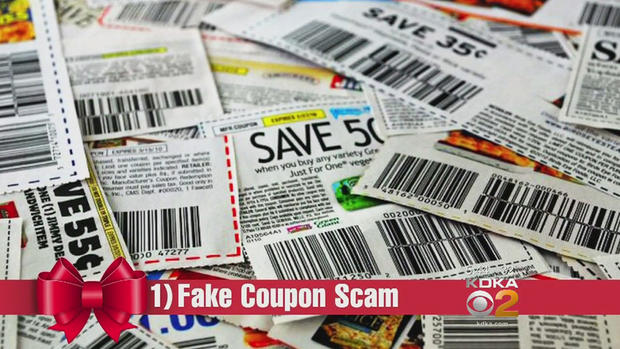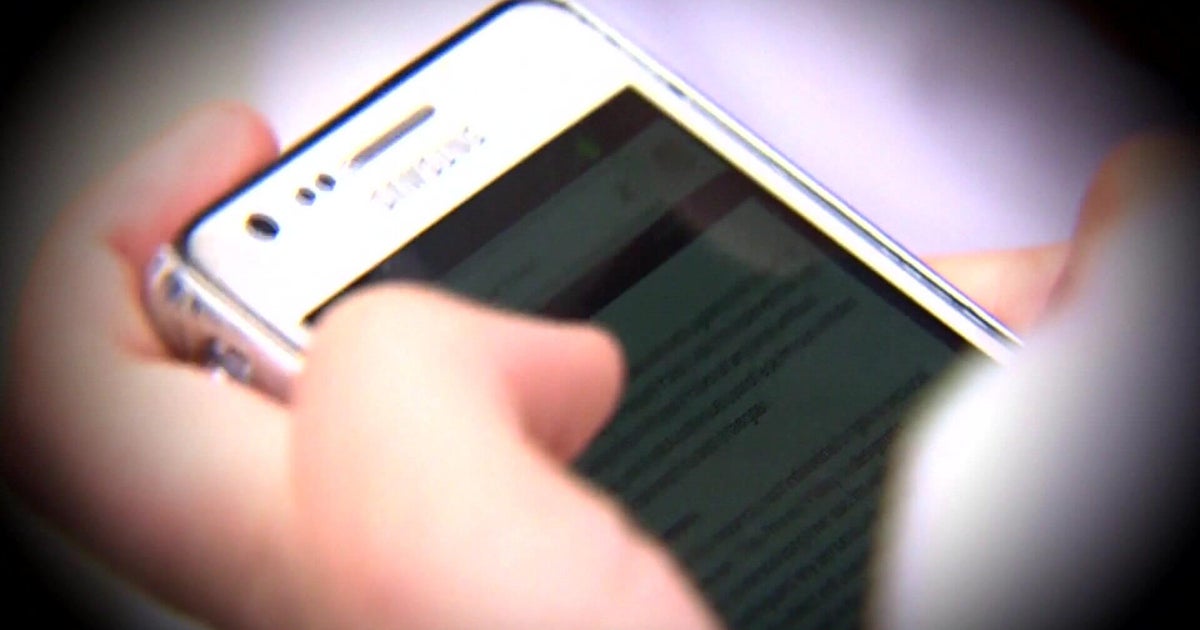Better Business Bureau Issues Warning About 6 Common Holiday Scams
Follow KDKA-TV: Facebook | Twitter
PITTSBURGH (KDKA) - With the holiday shopping season upon us, there are many deals to be had.
While you're trying to save money, scammers are hoping to cash in on everyone's love of a good deal.
The Better Business Bureau of Western Pennsylvania has identified the top six scams everyone should be aware of this holiday season.
First, fake coupons.
"Leading up to the biggest holiday shopping weekend of the year, we see these fake coupon scams circulate for popular retailers," says Caitlin Driscoll with the Better Business Bureau.
For example, there was a recent post on Facebook that appeared to be from Kohl's.
It said all you had to do was simply like and share the post and Kohl's would send you a $150 coupon for Black Friday.
More than 530,000 people shared the post, but it turns out the post wasn't from Kohl's.
Fake coupon scams mostly are used to get personal and demographic information about people, which scammers can sell.
Other times, they're used to get your email address and send viruses or malware to your computer.
Kohl's has since had that particular post removed from Facebook, but the Better Business Bureau says there are countless other posts just like it for other stores.
The second scam to watch out for this holiday season is fake pets.
If you're hoping to have an adorable puppy or kitten under the Christmas tree, beware of looking for it online.
"Eighty percent of online links associated with pet searches are fraudulent links or scams altogether," says Driscoll.
Scammers create websites using pictures of highly sought-after breeds and claim to be selling them at a heavily-discounted price.
You put down a deposit, but the pet never comes. In many instances, people lose thousands of dollars to this type of scam.
Even if the website claims to have a local address, don't be fooled.
"We have seen an uptick in these scams that are actually utilizing local western Pennsylvania addresses," says Driscoll.
Every breeder in Pennsylvania is required to be registered with the state, and that is an easy way to check if a breeder is real.
Gift card scams are another popular scam this time of year.
When buying a gift card, you should always check the back of the card to make sure the PIN hasn't been scratched off or that it doesn't appear to have been altered.
Another safeguard is to take a card from the back of the rack.
"Scammers that use this type of method tend to be impatient. So they'll tend to put impacted gift cards closer to the front of the rack, versus the back. So it's better to pick one that's closer to the back than the first one up front," says Driscoll.
If you're able to register your gift card after buying it, do so.
Also keep the receipt and give it to the recipient.
That way if the card does end up being drained, the store where you bought it might be more apt to reimburse the amount.
The fourth scam on our list is online secret sister gift exchanges.
The Better Business Bureau calls this is a classic pyramid scheme.
Similar to the fake coupon scam, this uses social media to draw victims in with a post which claims if they send one gift, they can get 36 gifts in return.
"All they have to do is share the post, invite others and then they'll receive the information," says Driscoll.
The catch is that you have to supply your mailing address in order to participate.
Driscoll says what you're actually doing is providing your information to scammers to be able to sell your contact information.
And if you do get caught up in this, you're actually breaking the law.
Using the U.S. Postal Service for gift exchanges is considered illegal gambling, and you could end up being charged with mail fraud.
Our fifth scam is the utility imposter scam.
While it technically isn't about the holidays, it does happen more often in the winter.
The Better Business Bureau says they've seen an uptick recently in these scams, especially with scammers pretending to be from Duquesne Light Company.
The scammer calls and claims they never received payment or that there was an issue processing a payment.
They say they're going to shut off your electric, gas or water unless you pay in MoneyPak gift cards.
They also say you can't pay by check or credit card due to the processing time frame associated with those payment methods.
Other times, scammers show up at your door claiming they can lower your rates, by looking at your utility bill.
"But what they're really doing is they're trying to capture your account info so that they can switch you to a different utility company without your knowledge," says Driscoll.
They sometimes also claim your meter isn't working and you need to pay to have it repaired.
In this instance, Driscoll says they're trying to get your credit card, debit card or bank account information.
When it comes to utilities, the Better Business Bureau recommends always contacting the company directly using the phone number listed on your bill.
The sixth scam you need to watch out for right now are phishing scams.
Because there are a lot of things being shipped over the holidays, scammers will send emails impersonating UPS or FedEx.
In the email, they claim they tried to deliver a package, but you weren't home, so they ask you to download an invoice or click on a link to find out how to reschedule delivery.
But, once you do that, they can access all the personal information in your email and possibly your computer or phone.
The Better Business Bureau says if you come across any of these scams, you should report them immediately.








